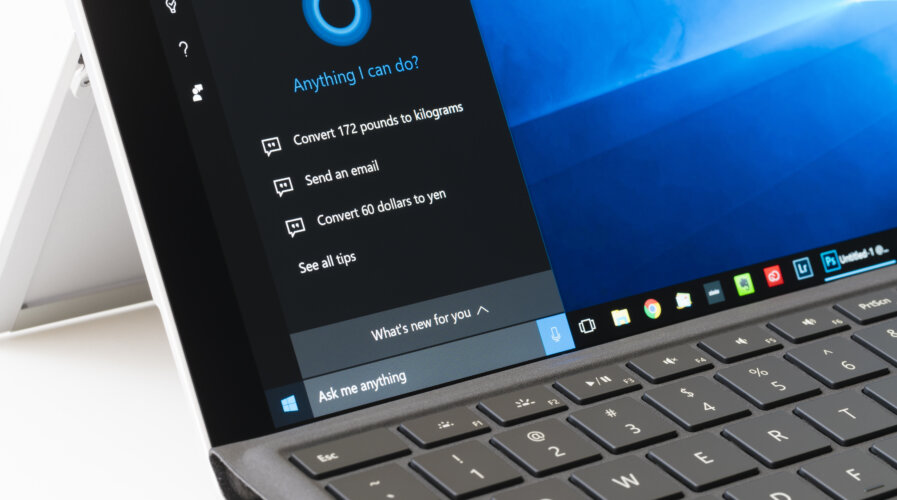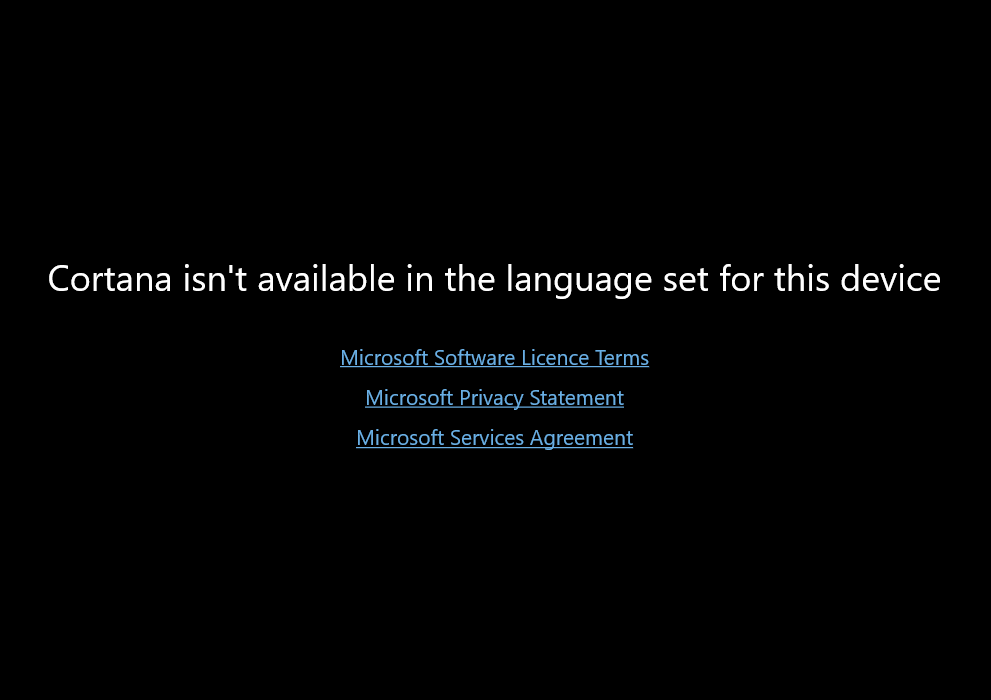
Microsoft has decided to phase out the Cortana app in new Windows update. (Source – Shutterstock)
Goodbye Cortana – What the new Windows update holds for users
- Windows 11’s new update phases out Cortana.
- With the latest Windows update, Cortana steps back as Copilot and revamped Bing step forward.
Is this a blessing in disguise? Microsoft has recently decided to phase out the Cortana app for Windows 11. As reported by The Verge, a new Windows update is being dispatched to render the digital assistant inactive, marking three years since it discontinued Cortana apps for iOS and Android.
If you attempt to activate Cortana on Windows 11, a message will pop up signaling the app’s outdated status, accompanied by a link that explains the transition. While Microsoft’s future plans involve ending Cortana support on Teams mobile, Microsoft Teams Display, and Microsoft Teams Rooms by fall 2023, the company has confirmed that Cortana will continue to function within the Outlook mobile app.
Cortana’s inception was as a digital assistant for Windows Phone before its integration into Windows 10 in 2015. It was prominently embedded within the Windows 10 taskbar, boasting features like voice commands, reminders, and app launching. However, while Microsoft removed Cortana from the Windows 11 taskbar and initial setup, they retained the standalone version until recently.
In the grand scheme, Cortana found it challenging to rival competitors such as Alexa and Google Assistant, notwithstanding an extensive makeover for mobile platforms. The trajectory of Cortana seemed intrinsically tied to the shortcomings of the Windows Phone, a sentiment echoed by Microsoft’s CEO, Satya Nadella, in 2019, acknowledging Cortana’s lagging performance relative to competitors.
Microsoft’s efforts are channeled towards Windows Copilot, an impending sidebar feature for Windows 11, driven by Bing Chat. This feature will manage Windows configurations, resolve queries, and offer many other functionalities.
Cortana vs other modern voice assistants
Realistically speaking, who actively uses Cortana? Comparing it to rivals like Google Assistant, Siri, and Alexa, one can’t help but acknowledge that these counterparts offer a more refined and user-centric experience.
Some of the reasons for this perception:
Concerning voice recognition, it’s worthwhile to gauge how adeptly these virtual assistants discern human speech. iPhone fans will vouch for Siri’s resilience against ambient noise and adeptness in grasping diverse accents. Thanks to its intuitive conversational style, Siri is a go-to for everyday interactions. Google Assistant mirrors this proficiency, understanding users even in less-than-perfect vocal clarity.
Alexa excels on the basic functions spectrum, adeptly handling primary tasks, notably, those tied to Amazon purchases and reminders. However, Alexa’s reliability wavers for more intricate tasks such as online reservations or ticket bookings. Reminder-setting isn’t overly complex on Alexa, but it merely chimes when activated, sans any descriptive alert, requiring manual deactivation. Contrarily, Cortana grapples with voice interpretation, often under minimal ambient disruption. This limitation essentially rendered it non-competitive as it often misinterpreted fundamental commands.
Addressing navigation aids, these digital aides are indispensable for journey planning, offering the most direct routes and real-time traffic updates. Here, Siri is the frontrunner, not just providing time estimates but also seamlessly integrating with GPS navigation, all the while fielding traffic-related queries. Google Assistant trails slightly, lacking some features and a seamless user interface compared to Siri. In navigational assistance rankings, Alexa and Cortana falter with public transit, relegating them to the lower echelons.
In the email realm, Siri and Google Assistant are neck and neck. Vocalizing a contact’s name prompts most assistants to locate the contact and expedite email sending. Siri and Google Assistant prompt for email subjects, with Siri, integrated with Apple Mail and Google Assistant leveraging Gmail. Siri wins brownie points for instantly accessing unread emails upon request and even orally narrating the latest email. Google Assistant, in contrast, only displays the two most recent emails without facilitating Gmail access. Alexa and Cortana often misinterpret such requests, with Cortana sometimes resorting to Bing searches for clarity. While Cortana occasionally provides answers, Alexa often remains mum post-command.
While each virtual assistant has its own unique blend of strengths and limitations, the ideal choice is subjective, hinging on individual preferences and tech compatibility.

Microsoft shut down Cortana in Windows 11. (Source – Shutterstock)
This shift underscores Microsoft’s commitment to adapting to the ever-changing technology landscape and user preferences.
Microsoft’s new focus in the new Windows update
As Cortana fades from the spotlight, Microsoft is introducing alternative ways for users to engage with voice commands and AI-powered assistance. Here are some notable features and functionalities within the Windows ecosystem:
- Voice Command on Windows 11: A fresh addition to Windows 11, this feature facilitates control over your PC using vocal commands, from opening apps to composing emails.
- Revamped Bing: The new AI-infused Bing aids in sourcing answers from the web. A simple query, typed or spoken, yields answers from many credible sources.
- Microsoft 365 Copilot: This novelty employs AI to harness your words for productivity, drawing from your Microsoft 365 data.
- Windows Copilot (Previewed in June for Windows 11): An integrated AI assistant, enhancing multitasking in collaboration with Bing Chat and external plugins.
Anticipations are high for Windows Copilot’s unveiling this fall, accompanied by a Windows 11 patch incorporating innate support for RAR and 7-Zip. This initiative is a testament to Microsoft’s unwavering dedication to refining the user experience.
The phasing out of Cortana for Windows 11 marks a pivotal juncture in Microsoft’s technological voyage.
READ MORE
- Securing Data: A Guide to Navigating Australian Privacy Regulations
- Ethical Threads: Transforming Fashion with Trust and Transparency
- Top 5 Drivers Shaping IT Budgets This Financial Year
- Beyond Connectivity: How Wireless Site Surveys Enhance Tomorrow’s Business Network
- Transformed Finance and Automated Excellence with Trintech


